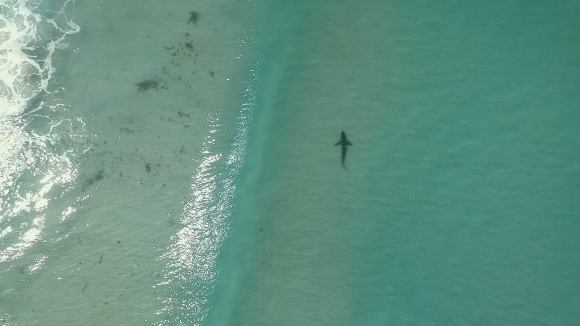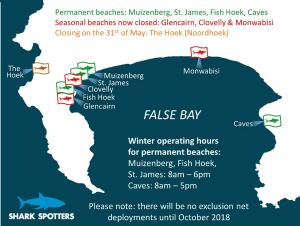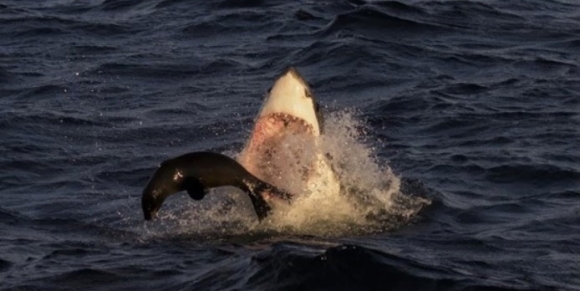
Where are the sharks?
Monday 7 May 2018 The rain has arrived - sort of, the fires are lit, and the surf is cooking, which means it must be winter in Cape Town. But what does it mean for shark activity? The Shark Spotters have this to say.

FATE IS SEALED: In summer, the sharks move from the seal colony inshore. Photo Sharkspotters

While we pull out the hoodies and ugg boots and watch our JoJo tanks fill up, what does the change in season into winter in Cape Town mean for great white sharks, and most importantly, for shark safety?
Our research program has been studying sharks in Cape Town for over 14 years and has shown that while white sharks are present in Cape waters year-round, they show a strong seasonal variation in how they use False Bay.
During the autumn and winter months (May-September), white sharks aggregate around Seal Island in the middle of False Bay. This is the time when the young of the year seal pups leave the island for the first time and make for an easy meal for the white sharks.

PUP CATCH: Winter is seal birthing season, when there is plenty of weak prey. Photo Shark Spotters

During the spring and summer months (October - April), the seals learn to avoid the sharks' predatory attacks, and the sharks change their diet and generally move inshore where they patrol up and down the coastline in search of prey such as yellowtail, smaller sharks and rays.
The spring and summer season is therefore considered a higher risk period for shark bites as this is the time when there is the greatest spatial overlap between people and sharks.
Help the Shark Spotters reach their R60,000 target for 35 new pairs of high powered binoculars to ensure the spotters have the best tools for the job!


